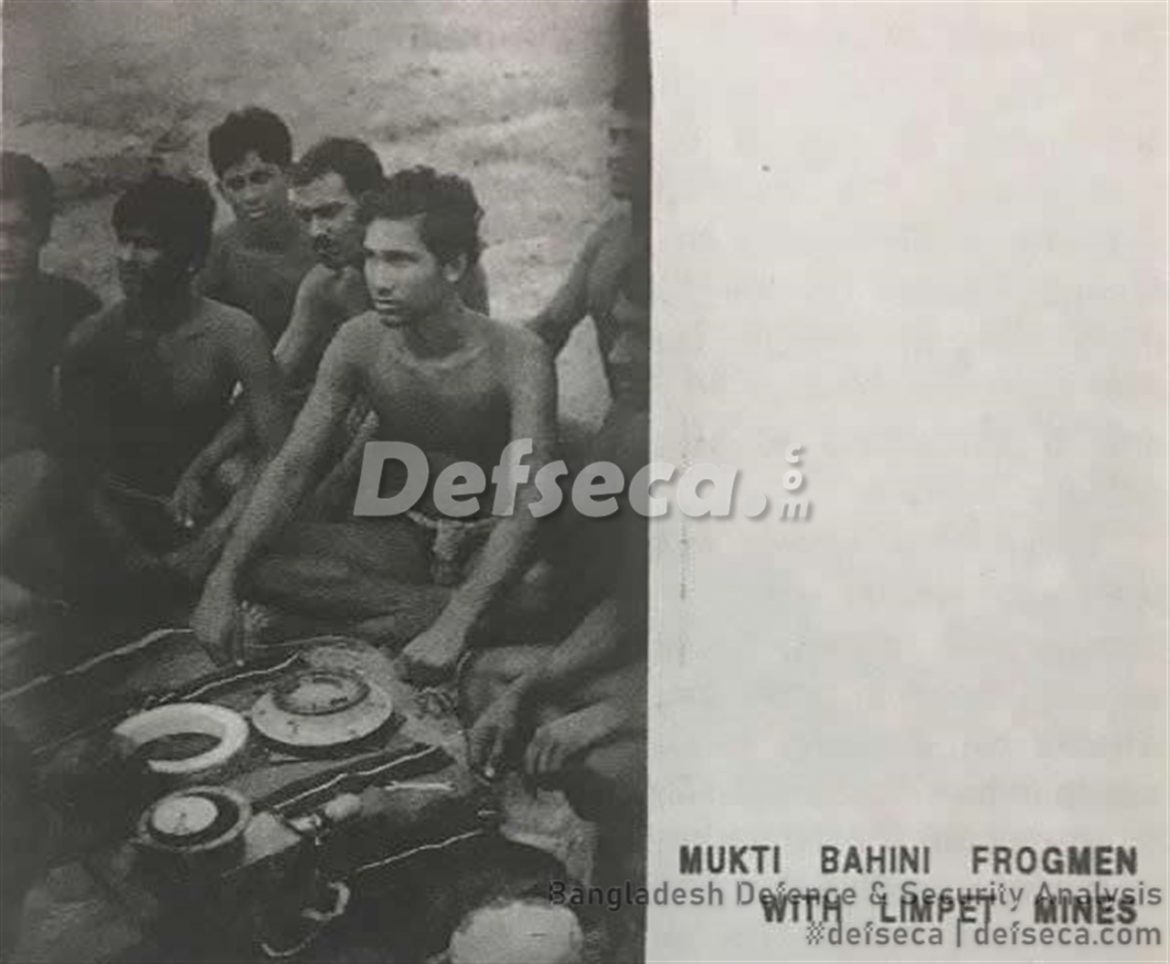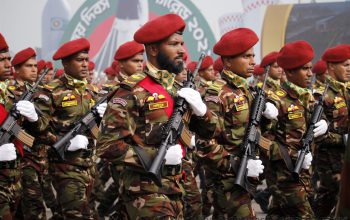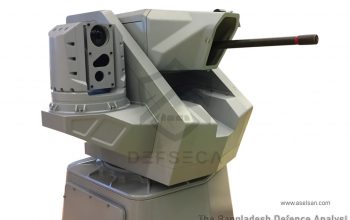The Mukti Bahini Frogmen were the elite Navy SEAL type force of the Bangladeshi freedom fighters.
The book “Untold heroism of Mukti Bahini frogmen” recounted the heroics of these elite naval commandos.
One of the main aims of these naval commandos were to disrupt communication between East Pakistan’s major inland river ports such as Narayanganj, Daudkhandi, Chandpur and Barisal, which were the main arteries of communication in estuarine Bengal. Moreover they wanted to prevent West Pakistani forces to bring in supplies from the sea and also prevent them from escaping through the waterways.
The Mukti Bahini frogmen were tough both mentally and physically and had all the characteristics which the Vietnamese schoolmaster General Giap had itemised as the ingredients for successful guerrilla campaign, viz. courage, endurance and aggressiveness. Above all, their burning desire for revenge overcame all obstacles as they were glad to lay down their lives for their beloved ‘Sonar Bangla’. Moreover, these frogmen had little political or post-insurrection ambitions unlike guerrilla forces of other nations. They were completely devoted to their objectives and on achieving independence were content to slip back to their everyday way of life without fuss or fanfare. These remarkable estuarine operations were but a brief interlude in their young lives.
Perhaps the most well-known operation of the Mukti Bahini frogmen was ‘Operation Jackpot’. This was their very first operation launched on 15 August 1971. The naval commandos simultaneously attacked Chittagong, Chandpur, Mongla and Narayanganj sinking 26 Pakistan Army gunboats carrying arms, ammunition and supplies.
During the 1971 war of liberation, the naval commandos were tasked with operating in Sector 10. This sector mainly consisted of coastal areas including riverine and coastal ports.
Interestingly enough there was no particular sector commander unlike the other sectors. During operations, the control of the naval commandos was vested in the hands of the sector commander of the area scheduled for operation.
In August 1971, 148 naval commandos were split into four groups and sent to the interior of Bangladesh.
Submariner Abdul Wahed Chowdhury (Bir Uttam) was the leader of a group of sixty commandos for operations in Chittagong Port. But the naval operations of the commandos were launched in Chittagong under the leadership of sector commander Major Rafiqul Islam. Operation Jackpot began on 15 August at midnight. The Commandos installed mine on the ships and then dispersed. Some of the mines exploded before the stipulated time.
The Chittagong port trembled at 1-40 am. Several burges and ships anchored in Chittagong port including two Pakistani ships MV Harmuj and MV Al-Abbas were destroyed. MV Harmuj and MV Al-Abbas were loaded with 9910 and 10,418 tons of war materials respectively.
Forty-eight naval commandos under submariner Ahsanullah (Bir Pratik) made operation in the Mongla port. Six ships anchored in the port were destroyed by the explosion of mines.
In the Chandpur river port operation twenty naval commandos came out successful under the leadership of Badiul Alam (Bir Uttam). They simultaneously destroyed some ships anchored at Chandpur port with mine on 15 August.




